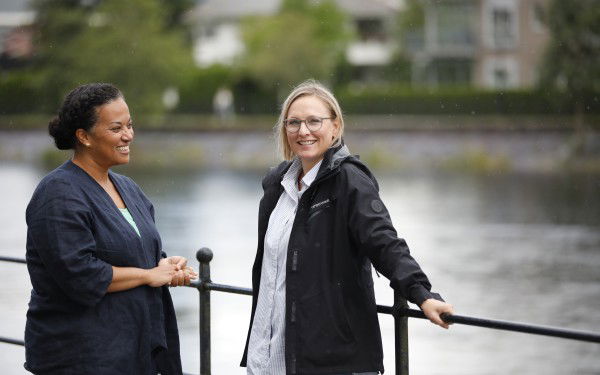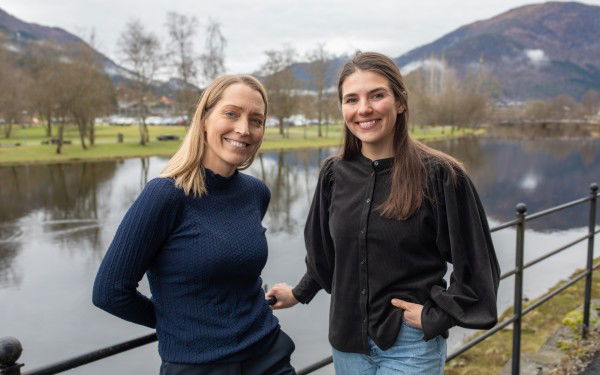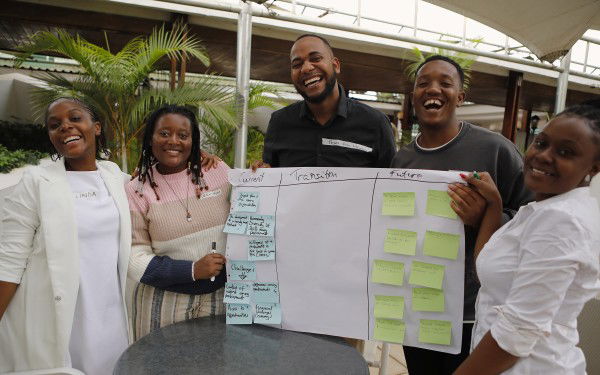These international projects will receive grants from Norec in 2024
18. December 2023
Increasing food security, advocating human rights, reducing infant mortality, clean energy production and a lot more: Here is an overview of the new allocations for 2024.
Eight new exchange projects in 2024
In 2024, Norec received a record number of applicants for the exchange grant. In total, eight of these international partnerships will receive grants from Norec in 2024.
In the overview below, the coordinating partner in the partnerships are marked with bold letters, because this is the party that receives the funding from Norec. However, all parties in the project are involved in designing and carrying out the projects in cooperation with each other.
1. A voice to the people of the world’s slum areas
1 billion of the world’s population live in slum areas. Slum Dwellers International (SDI) is a global movement aiming to strengthen their voice, agency and influence. The exchange project aims to strengthen the voice and impact of young leaders in this work.
- Slum Dwellers International (SDI), South Africa
- Shack Dwellers International (SDI Kenya), Kenya
- Altogether, Uganda
- Centre for Community Organisation and Development (CCODE), Malawi
- Duration: 2024-2025
- Amount: USD 222 000,-
2. New solutions for increasing food security in the face of climate change
The project aims to provide young people with entrepreneurship and innovation training within the agricultural value-chain. The goal is to mitigate the impact of climate change on food security.
- StartHub Africa Ltd, Uganda
- Innovate Ventures (Ignite Africa Ltd), Tanzania
- Duration: 2024 — 2025
- Amount: USD 125 013
3. Increase and improve production for small-scale farmers
Through the exchange program, there will be an effort to enhance the production of sweet potatoes among small-scale farmers in Zimbabwe and South Africa. An increase in yield and income will enhance the living conditions for both the farmers and the local communities.
- University of Pretoria, South-Africa
- Rural Enterprise Trust of Zimbabwe (RETZ), Zimbabwe
- Duration: 2024 — 2025
- Amount: USD 68 495,-
4. Food sovereignty and sustainable agriculture
The project aims to use an interlinked* approach to address specific areas concerning food insecurity. The exchange will focus on increasing knowledge, sharing skills and practices that contribute to food sovereignty, sustainable agriculture, as well as organisational strengthening.
- Latin America Groups (LAG) Solidarity Brigades, Norway
- Coordinadora National de Viudas de Guatemala (Conavigua), Guatemala
- Movimento dos Trabalhadores Rurais Sem Terra (MST), Brazil
- Coordinator Nacional Agrario (CAN), Colombia
- Duration: 2024 — 2026
- Amount: USD 301 321,-
*interlink= An OECD model for macro economics.
5. Improve the care of sick and premature babies
This project aims to strengthen the care of sick and premature newborn babies, and support breast milk banking in India. Health personnel will be empowered in collaborative work in different cultural settings in both Norway and in India.
- Department of Global Health, Oslo University Hospital (OUH), Norway
- Lady Harding Medical College & Kalawati Saran Children’s Hospitals (LHMC & KSCH), India
- Duration: 2024 — 2026
- Amount: USD 275 126,-
6. Ensure access to clean energy in more African communities
Through the exchange programme, the partners will share technical and administrative knowledge on solar energy in the African market. They want to ensure that more African communities have access to to clean energy.
- Sunami Solar, Kenya
- Sunami Solar Uganda
- Multiconsult, Norway
- Synergy, Cameroon
- Duration: 2023 — 2024
- Amount: USD 224 775,-
7. Create sustainable jobs in agriculture, renewable energy and blue economy* sectors
This project aims to create more job opportunities and sustainable enterprises in agriculture, renewable energy and blue economy sectors in East Africa.
- TechBridge Invest Africa, Kenya
- MTI Invest, Tanzania
- University of Agder, Norway
- Duration: 2024 — 2026
- Amount: USD 254 193,-
*Blue economy = sustainable use of ocean resources for economic growth, improved livelihoods, and jobs while preserving the health of ocean ecosystem (World Bank).
8. Improve the rule of law and democracy through exchange
The project wants to enhance the participants understanding and knowledge of legal systems, processes, and institutions, and to develop their skills in legal analysis, advocacy, problem-solving, and research. This will enable them to promote the rule of law and democracy in East and Southern Africa.
- African Judges and Jurists Forum, South Africa
- International Commision of Jurists Kenyan Section, Kenya
- Legal Resources Forum, Zimbabwe
- Foundation for Human Rights Initiative, Uganda
- Duration: 2024-2026
- Amount: USD 286 000,-
Twelve new feasibility studies in 2024 — the step prior to an exchange project
The first step of any new exchange project supported by Norec is to apply for a feasibility study with your potential partners. During the feasibility study the partners meet to design the project, prepare and complete an application for an exchange project. The feasibility study must be completed and approved before applying for a Collaboration Agreement.
A feasibility study usually lasts between four and eight months.
1. Converting bio-waste to food
Converting waste to resources. The projects aims to utilizie bio-waste to produce proteins that can be used for both food and feed.
- NPC Solutions, Norway
- Universitas Bung Hatta, Indonesia
- Amount: USD 6 630,-
2. Network for improving human rights
Building regional and international network to ensure the protection and promotion of fundamental human rights among vulnerable members of the society.
- Centre for Study of Violence and Reconciliation (CSVR), South-Africa
- Justice Access Point (JAP), Uganda
- Children’s Education Society (CHESO), Tanzania
- Midriff Human Rights Network (Midrift HURINET), Kenya
- Amount: USD 6 272,-
3. Increasing the literacy rate in rural areas
Exchange of methodologies and good practices to extend literacy in rural areas of Guatemala and Colombia.
- Luker Foundation, Colombia
- Seeds for Progress Foundation, Guatemala
- Amount: USD 2 400,-
4. Food for tomorrow’s plate
The partnership wants to develop their educational programs for children and youth, related to food security and good nutrition. They will explore local and global solutions to give new generations healthy learning arenas and incentives to grow and produce the food on «tomorrow’s plate».
- Geitmyra foundation, Norway
- Farm for the Future, Tanzania
- Amount: USD 6 525,-
5. Find new solutions for waste management and pollution
The partnership wants to address challenges related to waste management and pollution in Bangladesh and India. They will promote environmentally friendly practices and advocate against opening of new dumping grounds, as well as improve waste handling in communities.
- RUSTIC, Bangladesh
- Salt Lake City Prayasam, India
- Amount: USD 752,-
6. Fighting climate change with new skills
The project is aimed at young professionals in research and development programmes in the fields of climate change. Through exchange, these young people will develop new skills which will enhance their work ability, and help them create affordable, reliable, modern and sustainable solutions to the climate and energy crisis.
- Hydro Lab Pvt Ltd, Nepal
- Key Laboratory of River and Coastal Engineering, Vietnam
- Sum: USD 4 064,-
7. Increasing food security in local communities through farmer-exchange
- Exploring the idea of exchange of young farmers between the two municipalities. The purpose is to increase food security in the local communities, through exchanging agricultural technical knowledge and experience.
- Sunnfjord Municipalty, Norway
- Ntchisi District Council, Malawi
- Amount: USD 7 387,-
8. Enhance international cooperation for clean energy
The partners aims to incorporate climate change measures into hydropower development, and enhance international cooperation for clean energy research and technology.
- Multiconsult AS, Norway
- Hydroconsult engineering Ltd, Nepal
- Amount: USD 7 026,-
9. International Think Labs for sustainable food production
The organisations wish to establish Think Labs for the private sector, academia, civil society, governments and United Nations. The aim is to come up with more sustainable systems for food production in the countries involved.
- UN global compact nettverk, Norway
- Pacto Global Rede, Brasil
- Pacto Global Red, Colombia
- Perkumpulan Indonesia Global Compact Network, Indonesia
- Global Compact Network, Kenya
- Sum: USD 19 760,-
10. Sharing practices regarding maternalt, infant and family health
The partnerships wants to share different practices regarding maternal, infant and family health. The aim is to work for a sustainable development of better health, and lower mortality in Norway and Brazil.
- University College of Western Norway Haugesund, Norway
- Universidade do Vale do Itajaí (Univali), Brasil
- Amount: USD 5 664,-
11. Food safety and economic empowerment for farmers
The project focuses on rice farmers, particullary female -and youths. The aim is to ensure food security and economic empowerment in the rice value chains.
- Foundation for Community and Capacity Development (FOCCAD), Uganda
- Action for Development Programs-Mbozi, Tanzania
- Amount: USD 3 966,-
12. Preventing trauma among young people affected by conflict
This project aims to promote psychosocial well-being amongt young people who have been affected by conflict. The exchange will contribute to sharing of methods to prevent and address stress, trauma and conflict resolution among youth.
- Kenya Red Cross Society, Kenya
- Uganda Red Cross Society; Uganda
- Amount: USD 3267,-




